Scaling Up Social Prescribing
The Phoenix Takes Flight research project explored the barriers and opportunities around scaling-up social prescribing programmes.
The programme brought together Lancashire-based community providers Green Close, Mandala CIC, The Gathering Fields and Lancaster District CVS as key research partners with academics from Lancaster University and the University of Liverpool.
The research explored the challenges of delivering high quality social prescribing to improve mental and physical wellbeing from the point of view of four different stakeholder groups:
- Social Prescribing Link Workers
- Community Providers (e.g. local & national charities/grassroots community groups/independent freelance workers)
- Experts by Experience (sometimes referred to as Service Users)
- Other health and social care professionals
The report is the culmination of work undertaken between 2021-2024 across the Northwest region, involving 83 participants, mostly from Lancashire and Cumbria.
The report offers six key recommendations that if adopted could be the starting point of a model social prescribing programme.
This research was important to me as I felt I was being listened to and had the chance to affect change.
In particular, with the idea that groups are just started up, run for a fixed period of time and then left to get on with it they more damage than good.
Instead they need to be supported to become sustainable to maintain the value of the good work that has been done.
Hilary Ayling, Expert by Experience
Context
People’s health and wellbeing are not only affected by medical factors; other social determinants of health such as poverty, unemployment, housing issues, social isolation, domestic violence, poor access to education, grief and loss can have an equally significant impact on people’s health and wellbeing.
In addition to the substantial effects that such aspects have on the health of society, an inability to effectively address the wellbeing needs of those with long-term mental and physical health conditions means that by not addressing this, further burden is placed on health systems and healthcare providers.
It is therefore vital that non-medical health and social care needs are responded to appropriately in the community by providing accessible, high-quality health and social care support, sometimes more generally known as social prescribing.
It is conceived that social prescribing services can empower healthcare providers to meet a more comprehensive range of individual needs; it can relieve the heavy burden placed upon GP’s and clinical services whilst also delivering better person-centred care an improving outcomes.
Methodology
Researchers used a range of different methods to gather information from each of the four stakeholder groups. These included online interviews, focus groups with each stakeholder group, and co-design workshops with combined stakeholder groups. During these participants were asked to consider:
- The current effectiveness of the social prescribing system
- Their experience of the social prescribing referral process
- Their preferred engagement format
- Their desired level and design of support strategies
- The perceived barriers to using programmes effectively
- Their views on what could be improved
The research culminated with a two-day Citizens Jury event held at Lancaster University in November 2023. This event was led by an external facilitator and tested the solutions identified in the co-design workshops.
It enabled independent critiques, more informed discussions, and a final consensus of recommendations, with the whole process being led by the Experts by Experience in consultation with other stakeholders.
The Phoenix Takes Flight research project has given us a better grasp of the social prescribing concepts that are effective for our communities.
We need to understand how to better target help to populations most in need if we are to address health inequality.
By placing communities at the heart of this research project and giving members a voice, we gained valuable insights.
Prioritising the lived experience of our community members within research studies can help us tackle the wider determinants of health more effectively.
Elaine-Ryan McNeil, Creative Health Associate, Lancashire & South Cumbria NHS Foundation Trust
Recommendations
- Invest in preventative and non-clinical approaches: developing a sustainable funding mechanism to support this
- Develop life-long wellbeing offers to ensure the practical, social, emotional and health needs of the population are met
- Challenge the language and terminology around social prescribing to enable a more inclusive and accessible approach
- Develop new bespoke programmes through co-production that provide empathic emotional support and aim to improve health outcomes
- Integrate community social prescribing delivery within current health and social care systems and consider the needs of those with more complex health and social needs
- Invest in workforce development at all levels and across the whole SP system, including the voluntary sector
The recommendations that have come from this research could be considered blue sky thinking. Well-meaning and idealistic but are they really realistic or achievable?
I believe the sands are shifting towards a change in statutory service design of health prevention provision and incorporating the voluntary sector within this.
So while these recommendations are idealistic, perhaps if enough people continue to bang this drum and to push this work under the noses of Integrated Care Boards, Local Authorities and influencers the tide really will turn and real change will come.
Jenny Reddell, Community Health Officer, Lancaster District CVS
